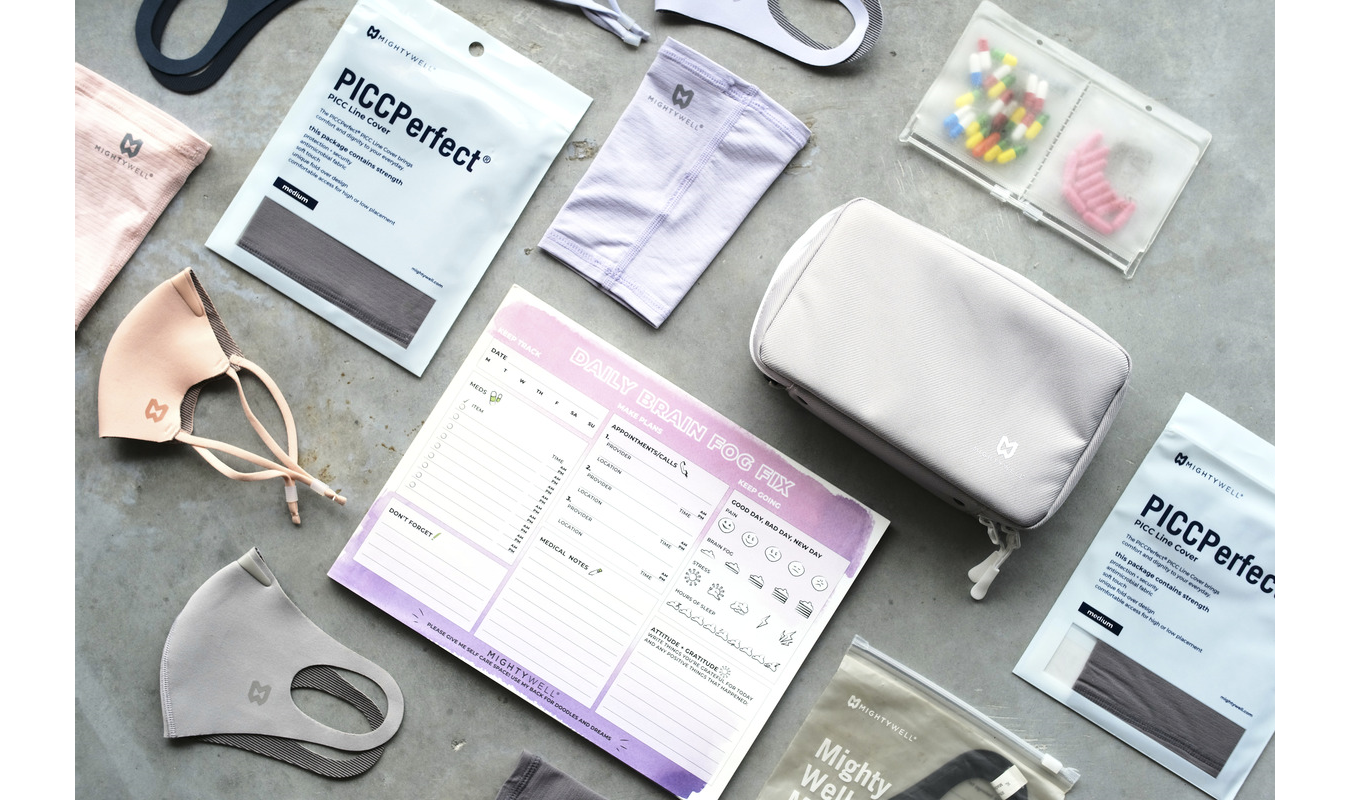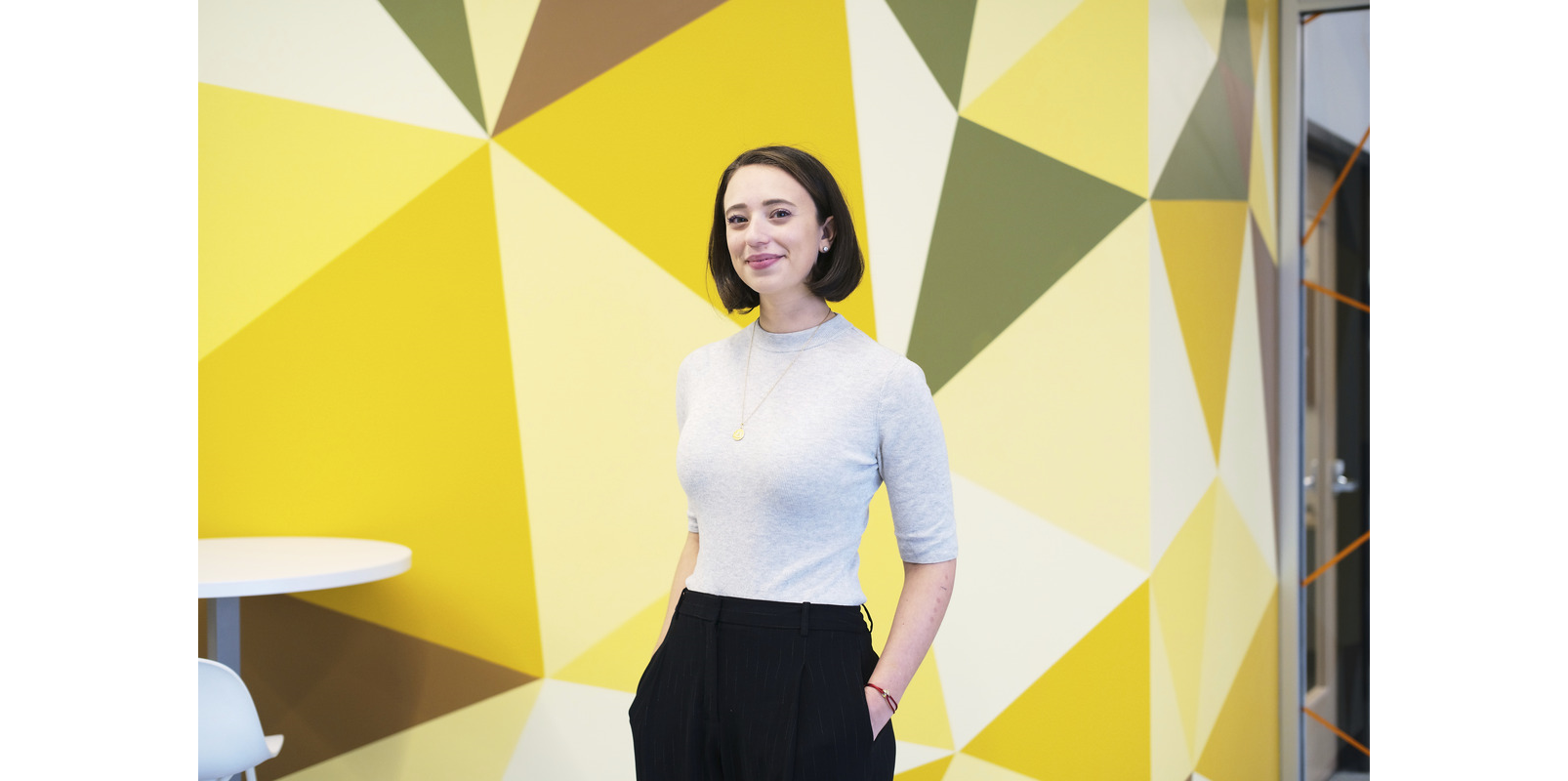Interested in starting your own entrepreneurial journey in health and wellness but unsure what to expect? Then read up on our interview with Emily Levy, Co-Founder & President of Mighty Well, located in Newport, RI, USA.
What's your business, and who are your customers?
Mighty Well is a growing line of medical gear designed to put strength, confidence, and mobility back into the toolkit for folks with chronic illness and anyone else coping with a health setback or disability. Starting Mighty Well pushed me to be more public about my journey with chronic illness. Once I started going public about my journey with chronic illness, it was like people were coming out of the woodwork. Mighty Well gave other people with chronic illnesses the ability to step forward and be public with their own stories. That's really what I find most empowering. We took a concept that I needed for myself, and now we have an FDA-approved product—the PICC Perfect Pro (RX).
We have also launched other medical gear, including an IV infusion backpack that is great for traveling with medical supplies., The Fluid Motion Backpack, shower sleeves for casts, wounds, and long-term IVs, the Waterproof Shower Protector, and a medication organizer, the Self Care Case, in addition to masks and other accessories. I want to share the message that you can turn sickness into strength.

Tell us about yourself
My co-founders, Maria del Mar Gomez, Yousef Al, and I, attended Babson College. I had a scholarship in women's entrepreneurial leadership. It was at Babson that the concept of Mighty Well was born. It started as a college project. My professor encouraged me to solve a problem in my own life because when the going gets tough, you have to go back to that central 'Why? Why are you doing this?' When I got sick, I needed a PICC line. It's basically a long tube that hangs out of your arm and goes all the way to your heart. I was a sophomore in college. I was going to sorority events and just trying to fit in. It just felt like I immediately stood out. When I had this IV, my doctor just told me to cover it with a sock on my arm. I thought, 'That's ridiculous,' but nurse after nurse recommended the same thing.
Growing up in a surf shop, you see all of these technologies coming out for athletes. They're meant to be moisture-wicking and antimicrobial, anti-stink wear. I thought, 'Why is no one creating wearables for people living with devices?' I grew up in a surfing community; why is there no community like that for people—especially young women, living with disabilities and chronic illness?
What's your biggest accomplishment as a business owner?
Our biggest accomplishment is achieving and building upon our mission daily. Mighty Well is on a mission to help people protect and manage their own medical devices. We also provide others with a supportive community and education where they can fully lean on one another. I like to say that we create the products I wish I had. It's really been a wild journey coming up for five years now. Just to see how we've continued to grow and help even more people, not just in the United States but all over the world.
What's one of the hardest things that comes with being a business owner?
For me, one of the biggest challenges of being a disabled business owner is dealing with society as a whole. As an entrepreneur, I've been through some amazing accelerators and amazing programs, but they really haven't worked with too many disabled entrepreneurs before. The message to entrepreneurs who are neuro-divergent is quite often, 'Don't let investors know you're sick.' I started my business when I was 22 out of my dorm room. I thought, to be successful, I can't show people that some days I need a cane. A cane is shameful.. But after the pandemic, I became more confident about being loud and proud about my disability. I now have the mindset that if I need a cane, what is wrong with that?!
Mighty Well's community resonates with the fact that I am disabled and I am a peer. We're not a conglomerate. Being a disabled entrepreneur, people don't always understand that when my brain fog starts, there's no point in having a meeting with me. With Prednisone medication that a doctor may put me on, I could be fine one moment, and the next, I need to be rushed to the hospital. It's really just dealing with other people's perceptions of what disability is. But it is definitely my mission and Mighty Well's mission to show them that your disability is an asset because so many other people are disabled—and they're your customers. They're your community.
What are the top tips you'd give to anyone looking to start, run and grow a business today?
I have three key pieces of advice for fellow entrepreneurs, especially for those who live with disability and chronic illness:
- Solve a problem in your own life. I think that the healthcare industry is really missing the patient's perspective. Sometimes when I drive on the highway, I see posters from the hospital, and I think, 'Did they even show this to a patient?' I would encourage disabled entrepreneurs to be public with their stories because it will empower them and others. But I think healthcare as a whole is now looking to include the patient's voice in all of this, so that's the direction you want to go in.
- Build a solid team. For better or for worse, there will be days where you can't go to that meeting, where you can't drive your car, where it's a trip to the ER. So I'm so thankful that I have Yousef and Maria as co-founders. They really stepped up while I was on my own healing journey. Find people who are opposites from you in a good way. I hate Excel and spreadsheets. Yousef does them for fun. Maria grew up with her own family business, so she's been managing people from a young age, and I trust her completely. Finding people who can amplify your mission is really critical.
- Build a community around your brand platform. I do not believe that e-commerce brands will succeed without fostering community and providing education. I invite all readers to join the Mighty Well community. Mighty Well is a community of friends in the fight. It's so broad. Not only are we creating wearable medical devices, but we are also creating a change in the conversation around what it means to be disabled in America.
Where can people find you and your business?
Website: https://mighty-well.com
Instagram: https://www.instagram.com/mightywell_/
Twitter: https://twitter.com/livemightywell
LinkedIn: https://www.linkedin.com/company/mightywell
If you like what you've read here and have your own story as a solo or small business entrepreneur that you'd like to share, then please answer these interview questions. We'd love to feature your journey on these pages.
Turn your craft into recurring revenue with Subkit. Start your subscription offering in minutes and supercharge it with growth levers. Get early access here.
